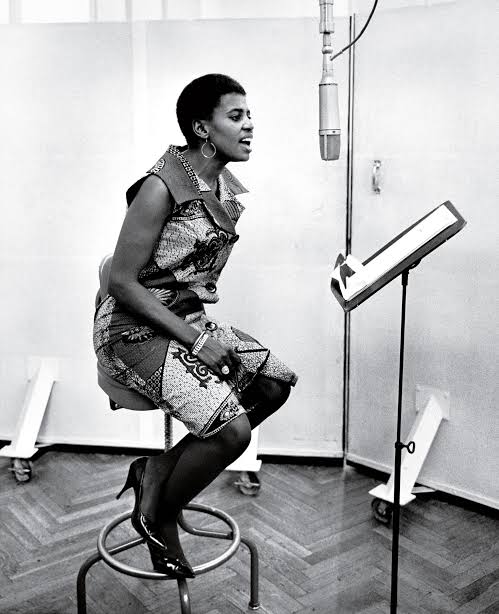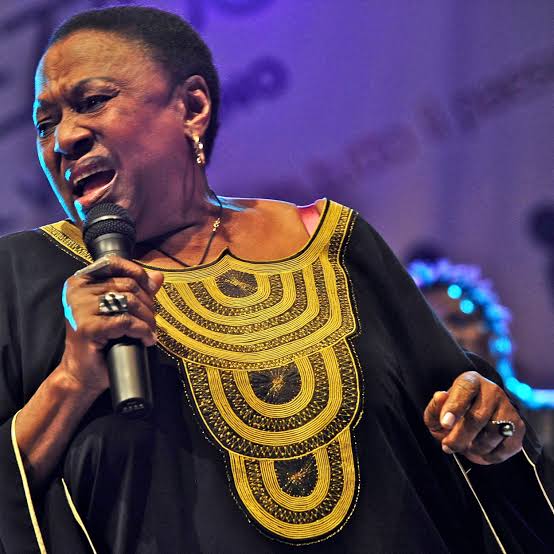In honor of Women’s History Month, the Involvement Newspaper will be featuring African Women Leaders, heroes and activists in a bid to remember their contributions towards a better Africa.
By: Baraka Mboya
ceasermboya@gmail.co
Thumbnail Photo Courtesy of deezer.com
As I sat into the night, tension rising due to late assignments and a feature due, the night was a bumpy ride. The whispers of a lazed worker soothed into my ears, till I read the feature again Miriam Makeba. Pata pata clicked and immediately the night took a turn. As a sign that this was indeed a baptized night, while I was speed reading her briefly, my eyes widened as I saw Album of the year 1965, winner. My heart raced and not a second later, I put my earphones on, turned the lights off, sank into the masterpiece “An Evening with Belafonte. ”

Zinzile Miriam Makeba was born on 4th March 1932 in Prospect Township, Johannesburg. Her mother, a Spiritual Healer and often housemaid, was widowed when Miriam was only 5. This forced her to work as a maid at a young age. As a young girl, she realized music was in her and this gave her comfort in the poverty-stricken area. She later joined a choir and soon started showcasing her talents with local bands, achieving success in her cousin’s band; the Cuban Brothers. It was not until she joined the Manhattan Brothers in 1954, that she found a stable reputation. She toured Zimbabwe, South Africa, and Congo till 1957. After this, Makeba sang for an all-women group, the Skylarks. Makeba’s appearances in Come back Africa (1957) and King Kong (1959) solidified her career in the music industry both locally and internationally.
From this point on, her career skyrocketed. She moved to New York in 1959, later resigning herself to exile. (It was during her exile where she met with musician Henry Belafonte, who was a force in her music career). In 1964, she got married to her King Kong co-star, Hugh Masekela. In 1966, she won at the Grammys for An Evening with Belafonte. She was the first black woman to have a top ten worldwide hit with Pata Pata. She got remarried in 1968 to militant African American Civil Rights activist Stokely Carmichael but due to embarrassment from the US government, she moved to Guinea. They later separated in 1978.

She mostly toured Europe, South America, and Africa in the ’70s and ’80s. During these years she addressed the United Nations General Assembly twice, speaking out against apartheid. In 1986, she was awarded the Dag Hammarskjold Peace Prize from the Diplomatic Academy for Peace. In her biography, the 1080s were a difficult time for her, as she separated from her husband and her daughter Bongi who died under tragic circumstances. She also struggled with alcohol and cervical cancer. In 1987, she joined American folk singer Paul Simmon for a very successful Graceland tour in newly independent Zimbabwe. After Graceland, Miriam was in great demand and went on to perform for heads of state and the Pope. After 31 years in exile, she returned to South Africa and became a goodwill ambassador for South Africa to the United Nations.
She later released her last album Homecoming and embarked on her tour in 1998. She also got a Presidential Award in 1999 after which she announced her retirement in 2005 although she continued to perform for smaller audiences. Makeba also continued with her humanitarian work through her Zenzile Miriam Makeba Foundation, including the Miriam Makeba Rehabilitation Center for abused drugs. She also supported campaigns against drug abuse and HIV/ AIDS awareness. In 2008 at the age of 76, Makeba died of a heart attack, 30 minutes after a 30-minute performance. She will never be forgotten for the music she produced to tell the stories of what happened during apartheid.
(I highly recommend giving Miriam Makeba a listen. You will know why.)
